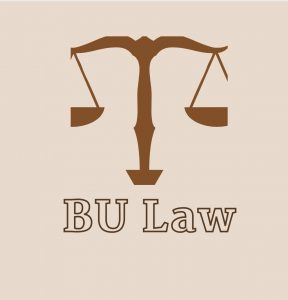Now that you have graduated!
You must have been congratulated for a job well done; to be candid postgraduate programme generally are rigorous. Particularly Master of Laws (LL.M) entails personal research and development alongside the requirement to fulfill some hours of attendance of seminars and lectures. As an international student, the competition is higher, therefore, one must have a focus for the future after one’s LL.M. In terms of opportunities, the most legal mind would be thinking of law practice for the notoriety of practice as solicitors and barristers in the UK. It is understandable that you are already thinking of a training contract. There are also opportunities in legal policy and development. There is also a place for law academics, in fact, there is room for governance and nation-building for lawyers and the like.
SQE Route
Unlike the previous route of admission into the roll of solicitors in the United Kingdom, the Solicitors Qualifying Examination (SQE) route entails passing the Solicitors Regulation Authority’s (SRA) prescribed examinations; SQE 1 and 2 as well as fulfilling the condition of 2 years qualified work experience scheme without compulsorily securing a training contract. It also admits transferable skills from most of us who are international students and experienced lawyers that qualified abroad. BU careers and employability advice office has counseled that, international students can undertake professional training during their two years post-study visa, which is contingent upon graduation. You may wish to contact BU careers for further enlightenment.
Legal Policy and Development
Personally, I can attest to the LL.M programme at BU that it prepares recipients well ahead of opportunities in policy analysis and development. This role may come up from international organisations. Non-governmental organizations, policy and research institutions as well as multi-lateral governmental institutions. One good way to access these opportunities may be through internship and externship programmes made available by relevant government agencies and international organizations. Some internships are unpaid, but they might be windows to more rewarding opportunities because of the valuable skills and experience available in the schemes. You might be lucky to find the paying ones. A legal career in policy analysis and compliance and development is also a good way to go for law graduate after LL.M, even a bachelors programme. You may also refer to the BU international grant office for information on Alan Turing placement programme which may assist you in the course of your placement abroad.
 Doctor of Philosophy Programme
Doctor of Philosophy Programme
Just like those who trained us, making a career in academics as a lawyer or legal researcher is ancient and rewarding. Perhaps, you neither see to compliance nor plead another person or persons’ cause but build a career in training others to that which you elected not to do. It is the requisite threshold, and it is simply advisable for you to continue your research towards achieving a doctoral degree in law. If you started now as an assistant lecturer or what have you, the esteemed rank of a professor may be the cap. Mind you, most law professors are consultants in various areas of research and interests. They are useful and consultants for many international organizations, judicial panels, professional tribunals and even move ahead to become judges.
In conclusion, as you graduate this summer, begin to look forward to the next line of action ultimately to maximise the opportunities available to you as a law graduate.

 Your Postgraduate Studies at BU; Tips on your Application as an International Student.
Your Postgraduate Studies at BU; Tips on your Application as an International Student. Summer Internship in the UK – International Students
Summer Internship in the UK – International Students Immersing myself in UK culture – how I created a sense of belonging while studying abroad at Bournemouth University
Immersing myself in UK culture – how I created a sense of belonging while studying abroad at Bournemouth University








